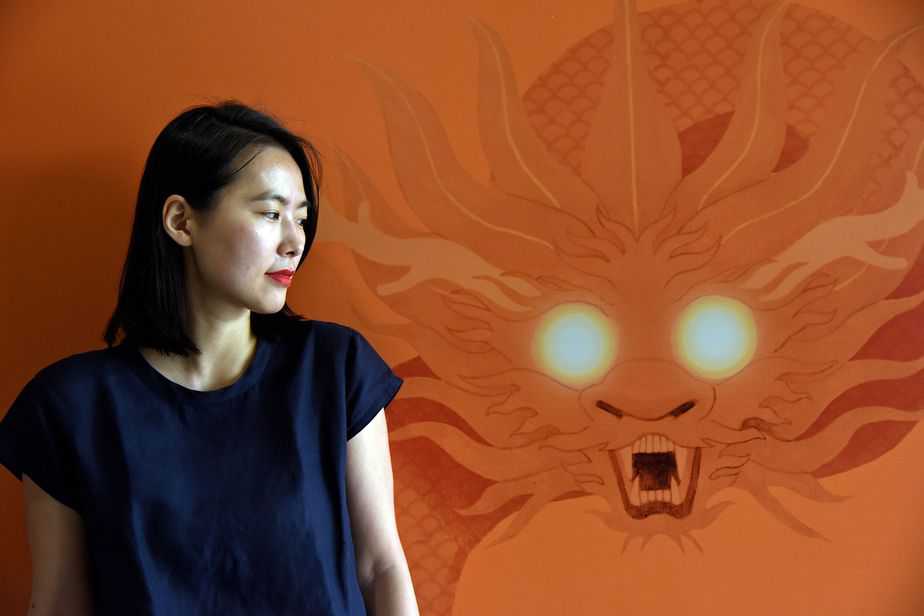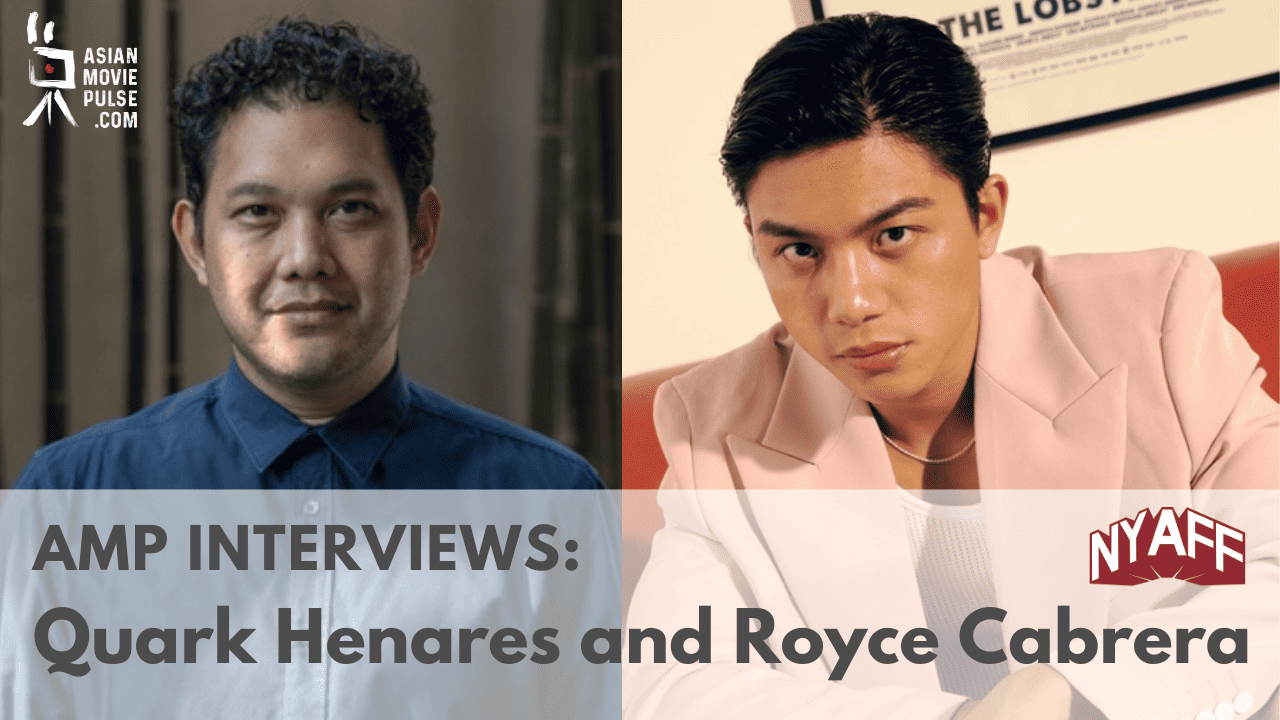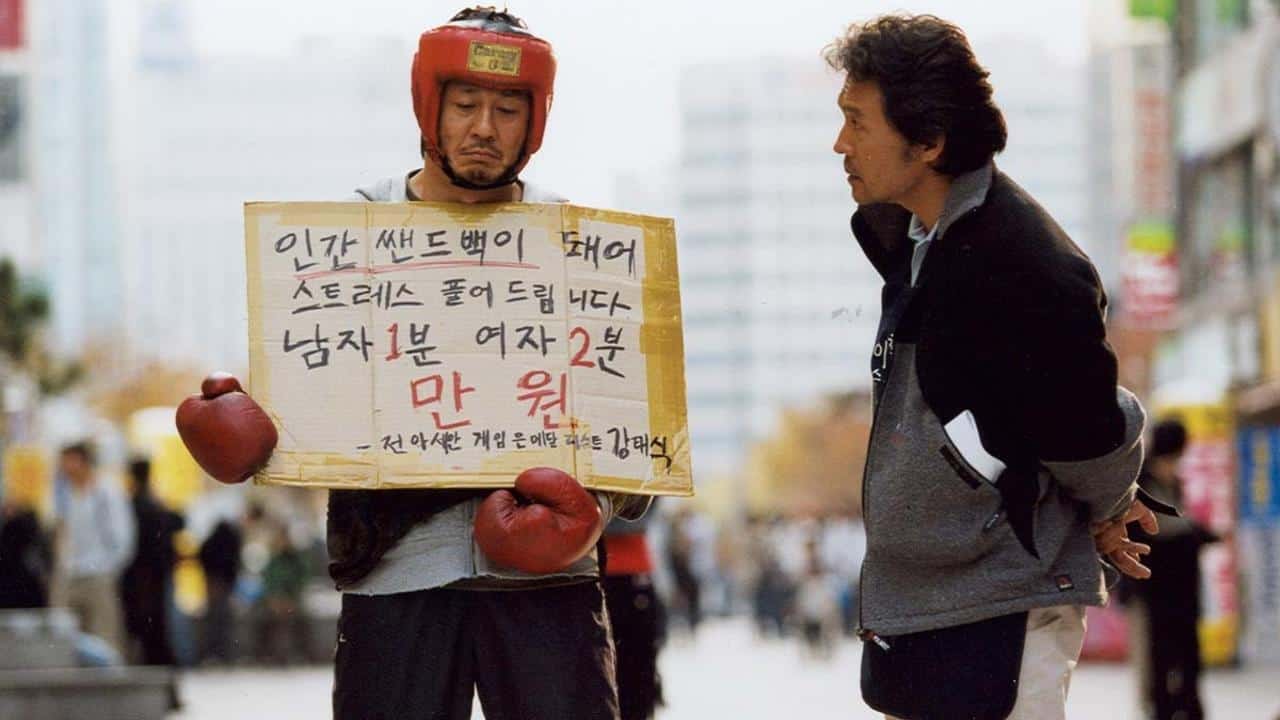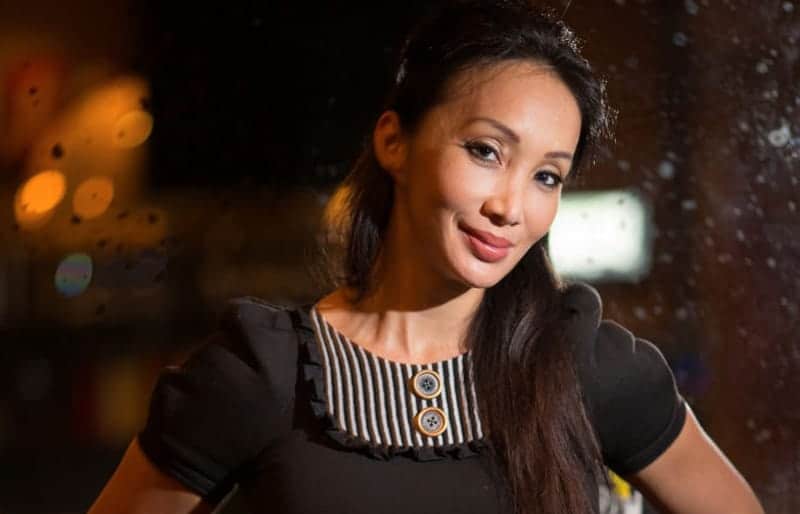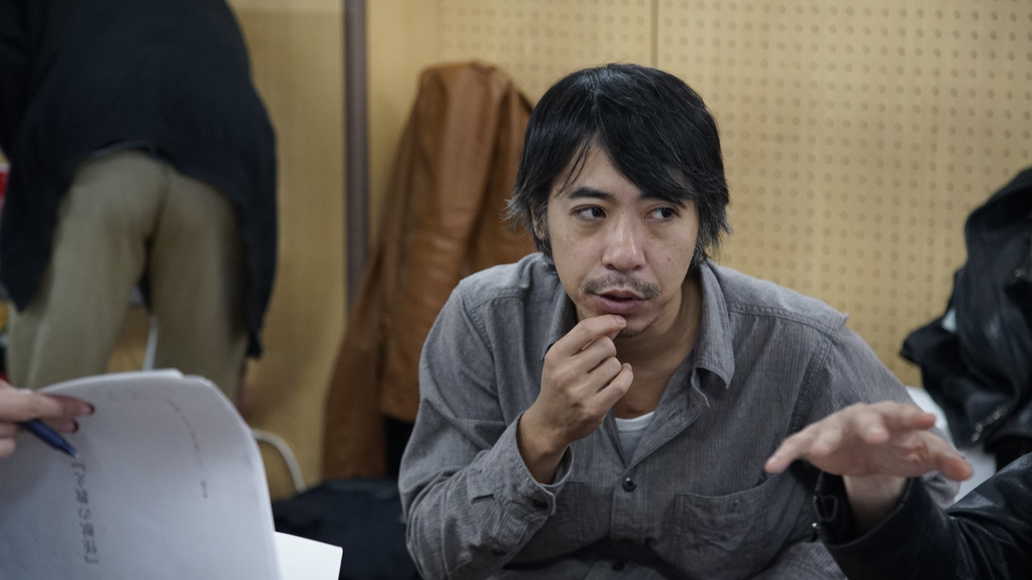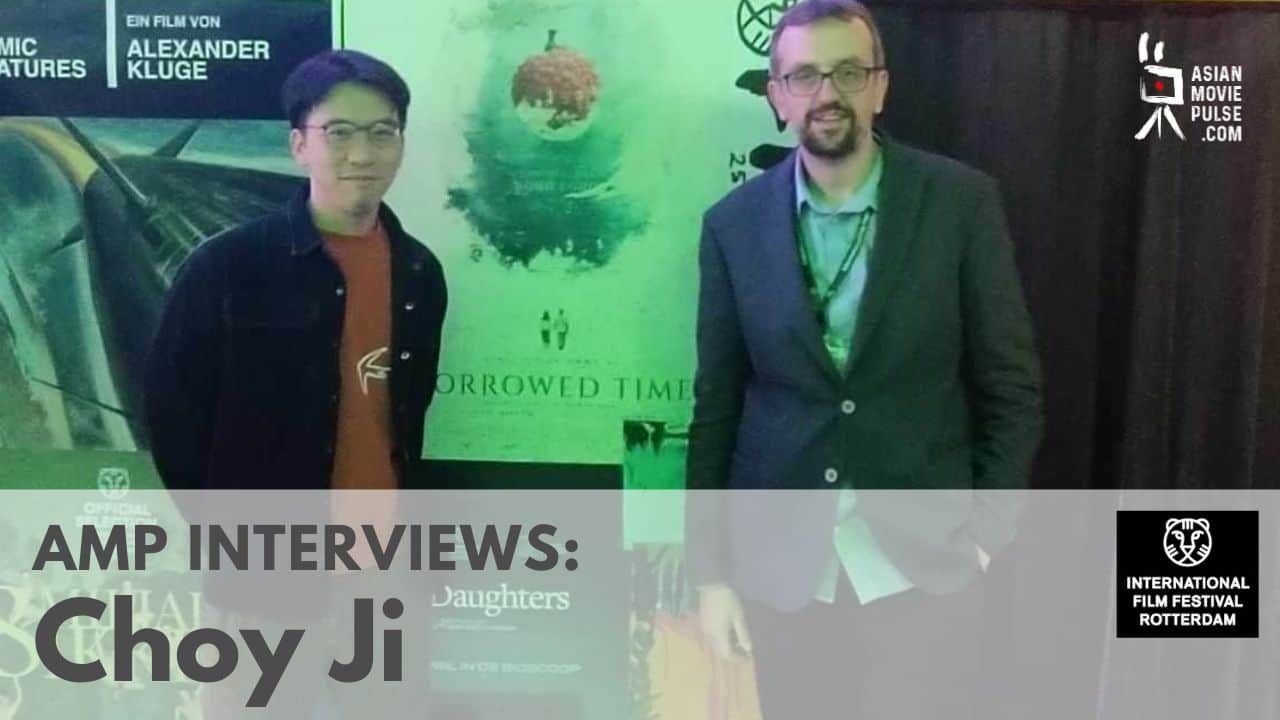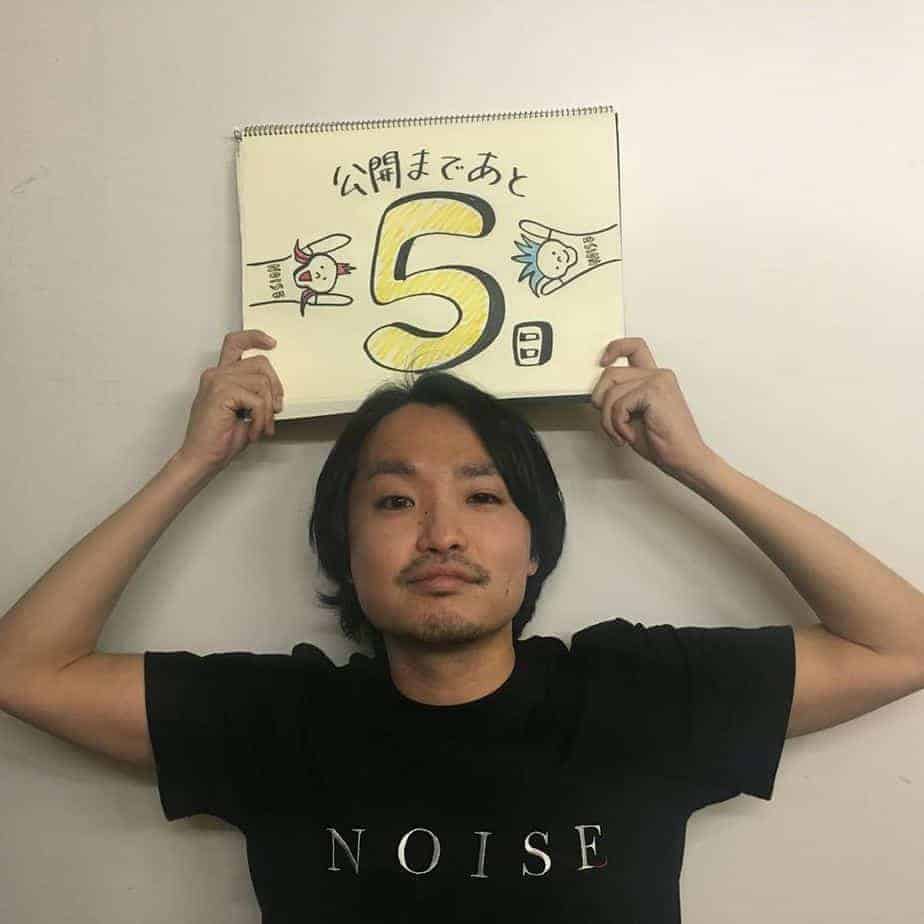With awards for the best director, the best original soundtrack (Matija Strnisa), “Premio Cima” (by the Association of Women Filmmakers and Audiovisual Media), the Young Jury Award for the Best Feature Film and the Audience award, Bora Kim's “House of Hummingbird” is the big winner of Cinemajove, Valencia International Film Festival. Asian Movie Pulse sat down with Kim in Valencia to talk about her feature debut, a coming of age drama that earlier this year won the Grand Prix for best film at the Berlin Film Festival's Generation 14plus sidebar.
I was wondering about the title of the movie and its connection to the storyline.
Actually, the original title is just “The Hummingbird”, but in English the word alone doesn't sound right, which is why I combined the two. The explanation is simple – Hummingbird is the smallest bird in the world, but it beats its wings pretty fast and flies very long distances to find nectar. When I looked up the name in the encyclopaedia, I found out that it symbolised, among other things, love and hope, and that it generally stood for all the good things. This little bird is very much related to my main character Eun-hee. She is tiny, and she tries really hard to find true love through her journey, which I found very reminiscent of hummingbird's life.
The story is set up in 1994, which was a year marked by the World Cup, but also by the collapse of the Seongsu Bridge. What made you chose precisely that time, and what kind of significance do the 90's have for you?
I chose the 90's for many different reasons, but specifically the 1994 because this film is inspired by my personal memories. At that time, I was in the middle school just like my main character Eun-hee. Back then, my country was growing, and it was trying really hard to be recognized as a developed country. That' s why we built may things very fast without serious security measures and controls, which is also why the Seongsu bridge collapsed. The following year, a big department store collapsed as well, meaning that within 2 years we had two major tragedies. It was a significant wake-up call for South Korea in terms of raising up the awareness of what we were doing. That was the turning point which made the whole country think what it meant to be a human being, and we had to be really aware about the consequences of rush actions. My sister who attended a high school across the river, had to pass the bridge every day by bus. The morning of the accident, she was late for the bus which saved her life, but lots of her schoolmates were not that lucky.
That particular story is just one of many autobiographical details you've built into the script.
The whole film is very autobiographical. As an artist, I collected my memories along the way and reconstructed reality, choosing which memories to retell and which to remove. You kind of turn certain recollections into big stories, and some into smaller. It's a process of revision, but at the end, “House of Hummingbird” is a fictional film based on very personal experiences.
With awards for the best director, the best original soundtrack (Matija Strnisa), “Premio Cima” (by the Association of Women Filmmakers and Audiovisual Media), the Young Jury Award for the Best Feature Film and the Audience award, Bora Kim's “House of Hummingbird” is the big winner of Cinemajove, Valencia International Film Festival. Asian Movie Pulse set down with Kim in Valencia to talk about her feature debut, a coming of age drama that earlier this year won the Grand Prix for best film at the Berlin Film Festival's Generation 14plus sidebar.
I was wondering about the title of the movie and its connection to the storyline.
Actually, the original title is just “The Hummingbird”, but in English the word alone doesn't sound right, which is why I combined the two. The explanation is simple – Hummingbird is the smallest bird in the world, but it beats its wings pretty fast and flies very long distances to find nectar. When I looked up the name in theencyclopaedia, I found out that it symbolised, among other things, love and hope, and that it generally stood for all the good things. This little bird is very much related to my main character Eun-hee. She is tiny, and she tries really hard to find true love through her journey, which I found very reminiscent of hummingbird's life.
The story is set up in 1994, which was a year marked by the world cup, but also by the collapse of the Seongsu Bridge. What made you chose precisely that time, and what kind of significance do the 90's have for you?
I chose the 90's for many different reasons, but specifically the 1994 because this film is inspired by my personal memories. At that time, I was in the middle school just like my main character Eun-hee. Back then, my country was growing, and it was trying really hard to be recognized as a developed country. That' s why we built may things very fast without serious security measures and controls, which is also why the Seongsu bridge collapsed. The following year, a big department store collapsed as well, meaning that within 2 years we had two major tragedies. It was a significant wake-up call for South Korea in terms of raising up the awareness of what we were doing. That was the turning point which made the whole country think what it meant to be a human being, and we had to be really aware about the consequences of rush actions. My sister who attended a high school across the river, had to pass the bridge every day by bus. The morning of the accident, she was late for the bus which saved her life, but lots of her schoolmates were not that lucky.
That particular story is just one of many autobiographical details you've built into the script.
As an artist, I collected my memories along the way and reconstructed reality, choosing which memories to retell and whichto remove. You kind of turn certain recollections into big stories, and some into smaller It's a process of revision, but at the end, “House of Hummingbird” is a fictional film based on very personal experiences.

The film is multi-layered and nuanced, and it's not only about the family and the search for love, but it also shows a deeply patriarchal structure of the Korean society.
Yes, the patriarchal Korean society was one of the elements of my film. In “House of Hummingbird”, I tried my best to depict great female characters try to lead their lives free despite oppression and violence. Eun-hee meets this wonderful human being Youngji and through the connection, she grows and also gets to understand people around her who once she could not understand. I believe that suffering makes you stronger so, in the film, I wanted to show how one can flourish despite obstacles and find another human being and themselves to love.
Was it difficult for you as a female filmmaker to get the financial support?
In terms of the arthouse film productions, it's pretty fair for both female and malfilmmakerse. I got the support from my government, none of which was massive, and yet very significant for making this film. I had grants from three major state sources and Busan International Film Festival, and also for the Berlinale and for the post-production. Making indie films in Korea is good compared to some other countries like the US which don't have this government support system that we do. But in terms of big commercial, big-budget films, there is a glass ceiling. Women still don't get a fair chance of doing them. So there are a good amount of indie films by female directors but not many commercial/big-budget films by female directors.
Your cast is exceptional, especially the teenage actors. How did you find Park JI-hu, who's playing the lead role?
She didn‘t have a casting agency. Her mom signed her up for the audition, and when she started reading the script, I immediately liked her. She was someone who really understood the subtext, and not every teenage actor can do that. The film is very nuanced and there are many nuances, which she understood super-fast.
One of the topics occupying South-Korean authors is the education system, which is also the case in your film.
Well, it's all very connected – our education system makes, for instance, a huge impact on the gender inequality. When I was in school, I didn't agree with things I was told to do, and even less so with the extreme teaching methods. We were treated like objects, and if you didn't study hard, you were not worth anything. Teachers were treating kids in an inhumane manner, which made me angry. When I entered the art school it was different because of the nature of my studies, but at the same time, it was the continuation of the same mindset, a very capitalist notion of „happiness”. I guess my society is very much influenced by the American culture.

How was your family's response to your film, considering its autobiographical nature?
They liked it and they were very supportive of it. They knew what I was doing. I'd actually already made a short which in a way was a prequel to my feature debut, and which is about my family as well. In the short, the main character is also Eun-hee, but she's nine years old and played by another actrice. We see Eun-hee growing up in „House of Hummingbird“.
I guess, making those both films about my family strengthened our bonds. Now they are my stronghold. We didn't have a good relationship when I was younger, and now they understand me and they appreciate my art and respect me as an artist, which is a big change in my life. Dealing with both films made me understand them better. It was like a character study, or maybe even like a psychodrama. If you start treating your past and immediate environment as fictional characters and from a certain distance, it gets so much better because you have less of emotional twists, and you got to understand them better. If you see your family as „others“ or just as characters, you show more understanding. And they also took a very healthy distance while watching the movie, so we made peace with each other.
Food also plays a specific role in your film, which is also a South-Korean phenomenon.
My parents really ran a rice-cake house, and me and my brother helped them from time to time. The reason why lots of Asian directors use food in their films is because, evens if the families don't have anything to talk about or good relationships, we still eat together. Thebehaviour and the activity glue the families together. Eating at the same table is very important to Koreans, but I didn't want to use the clichés applied in many Asian films


